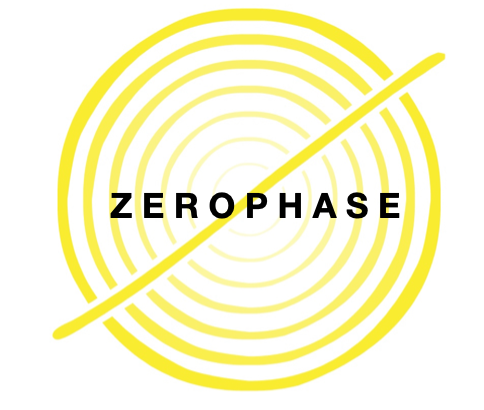Product Strategy and Management Diagnostic
Behind every great data organisation are awesome people, working cohesively, equipped with the right expertise, behaviours, and mindsets. We’ve built data teams from the ground up for 25 years and can take your team on the journey to the next level.
-
The Product Strategy and Management Diagnostic provides an independent assessment of how well your organisation defines, builds, and manages products across their lifecycle.
It helps you understand whether your product strategy is aligned with customer needs, market opportunity, and internal capability — and whether your teams are set up to deliver efficiently, iterate effectively, and sustain value over time.
This diagnostic is ideal for product leaders, PMOs, and boards who want evidence-based insight into how product thinking is embedded in practice, not just documented in plans.
-
The diagnostic draws on best practice from leading product management frameworks, including:
Lean Startup and Agile Product Development
Pragmatic Institute and IDEO design frameworks
SAFe Product Management and Scaled Agile principles
Digital Service Standard (where relevant) and modern software delivery practices
It evaluates both strategic alignment (vision, positioning, portfolio fit) and operational execution (planning, delivery, feedback, governance).
-
1. Product Vision and Market Alignment
Evaluates whether the product has a clear, validated vision anchored in user needs, competitive landscape, and organisational strategy.
Looks at market analysis, differentiation, and value proposition clarity.
2. Strategic and Operational Fit
Assesses how product strategy connects to business goals, funding models, and performance measures.
Examines whether products are prioritised based on value, risk, and feasibility.
3. Product Team Organisation and Capability
Reviews how product, design, engineering, and operations collaborate.
Considers whether roles are clearly defined, cross-functional, and supported by the right governance.
4. Planning and Roadmapping
Assesses the discipline of planning — how work is prioritised, dependencies are managed, and trade-offs are made.
Examines whether roadmaps communicate intent and enable transparent decision-making.
5. Design, Build, and Delivery Practices
Looks at the end-to-end product lifecycle — from discovery and design to development, testing, and release.
Evaluates the use of agile and lean methods to validate and deliver value iteratively.
6. Architecture and Technology Choices
Reviews the product’s underlying architecture, technology stack, and integration approach.
Assesses whether decisions support scalability, maintainability, and alignment with organisational standards.
7. Product Performance and Measurement
Examines how success is measured — from adoption and satisfaction to cost, risk, and sustainability.
Looks for meaningful metrics and feedback loops rather than vanity measures.
8. Customer Success and Feedback Loops
Assesses how feedback is captured and prioritised from users, customers, and internal stakeholders.
Reviews mechanisms for incorporating feedback into backlog and roadmap evolution.
9. Product Governance and Lifecycle Management
Evaluates governance processes for product health, decommissioning, and transition.
Looks at how decisions are made about when to scale, sunset, or invest further.
10. Build–Buy–Partner Decisions and Ecosystem Strategy
Explores how external options are evaluated, including partnerships, integrations, and open-source contributions.
Assesses whether these decisions are deliberate, repeatable, and aligned with capability and risk appetite.
-
You’ll receive three key outputs at the conclusion of the diagnostic:
1. Product Management Maturity Snapshot
A clear visual summary of your product management strengths and development areas across all dimensions.
2. Evidence Pack
A structured record of the interviews, artefacts, and documentation collected, suitable for use in executive briefings or internal improvement programs.
3. Roadmap for Uplift
Prioritised recommendations for improving product strategy, team structure, delivery capability, and governance maturity.
Includes actionable initiatives mapped to impact and effort.
-
Effort varies based on team size and product complexity:
Early-stage or single product teams: 2–3 contributors (product lead, designer, developer) over 1 week.
Mid-size or multi-team environments: 3–5 contributors over 2 weeks.
Enterprise or portfolio-level diagnostics: 5–8 contributors over 3 weeks.
Time commitment is reduced through adaptive questioning — the system knows when it has sufficient evidence and focuses effort where gaps or inconsistencies appear.
-
Traditional reviews rely on static interviews or templates.
This diagnostic uses adaptive assessment logic to probe deeper where it matters and skip what’s already established.
It produces a consistent, data-driven picture of product management maturity — turning qualitative conversations into structured, evidence-based insights.
Independent: Objective evaluation, not a coaching engagement
Principle-based: Aligned to value, not methodology bias
Scalable: Suitable for startups, mid-tier firms, and enterprise portfolios
-
This diagnostic is not a delivery audit, agile health check, or design critique.
It does not validate architectural designs or business cases directly.
Instead, it focuses on how well your organisation defines, delivers, and evolves products in a way that sustains value and alignment over time.
-
Organisations introducing or scaling product management capability
Product leaders seeking independent validation of team performance and structure
Boards and executives wanting assurance that investment in digital products is well-governed and value-aligned
Consultants and partners seeking to baseline client maturity and focus improvement programs

